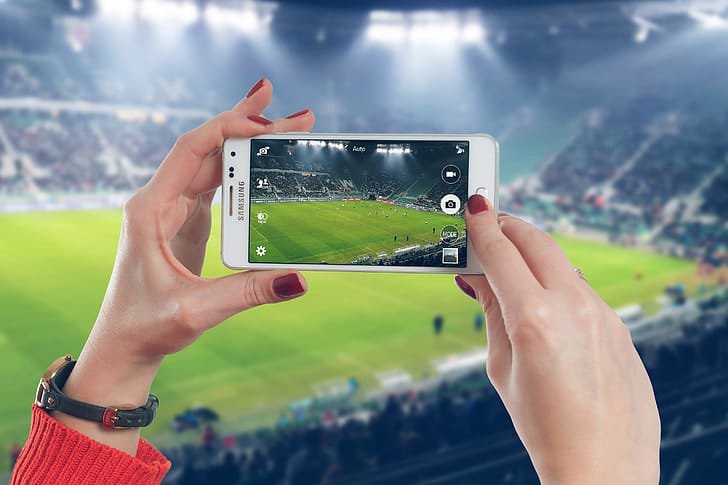Wearable technology has changed how people track their health. Smartwatches, fitness bands, and health monitors provide real-time data on physical activity, heart rate, sleep patterns, and more. But AI takes these devices beyond basic tracking.
With AI software development, wearable devices analyze data, detect patterns, and offer actionable recommendations. Whether it’s preventing heart disease, optimizing workout routines, or improving sleep, AI makes wearables smarter and more useful.
Let’s explore how AI enhances wearable technology and what the future holds for health and fitness tracking.
How AI is Transforming Wearable Technology
AI enhances wearables by enabling data-driven insights, predictive analytics, and automation. These improvements make devices more intuitive and responsive to users’ needs.
1. Real-Time Health Monitoring and Alerts
Traditional health tracking devices collect data but offer little analysis. AI changes this by:
- Continuously monitoring heart rate, oxygen levels, and stress levels
- Detecting irregularities and sending instant alerts
- Analyzing past trends to predict potential health issues
For example, AI in smartwatches can identify early signs of atrial fibrillation (AFib) by analyzing heart rhythm patterns. If irregularities appear, the device alerts the user and suggests seeking medical attention.
Other AI-powered monitoring features include:
- Blood Oxygen Tracking (SpO2): Helps detect respiratory issues and sleep apnea.
- Heart Rate Variability (HRV): Indicates stress levels and potential heart conditions.
- ECG (Electrocardiogram) Monitoring: Provides detailed heart health insights.
AI wearables provide early warnings for potential medical conditions by continuously analyzing health data.
2. Personalized Fitness Coaching
AI-powered wearables function as virtual fitness coaches. Instead of generic workout suggestions, AI tailors exercise plans based on:
- User’s fitness level, age, and weight
- Activity history and performance trends
- Heart rate response to different workouts
Wearables track workout intensity and suggest modifications to prevent injury. If a user exercises too intensely, AI recommends reducing intensity or increasing rest periods.
Other AI-powered fitness features include:
- AI-driven workout recommendations based on past performance
- Recovery time analysis to prevent overtraining
- Adaptive coaching that adjusts workouts based on fatigue levels
This level of personalization helps users achieve fitness goals more efficiently.
3. Advanced Sleep Tracking and Optimization
AI-powered wearables go beyond basic sleep tracking. They monitor:
- Sleep stages (light, deep, REM)
- Breathing irregularities
- Movement and restlessness
- Heart rate fluctuations during sleep
AI analyzes this data to provide sleep scores and suggestions for improvement. Some devices integrate with smart home systems to adjust lighting and temperature for better sleep conditions.
Wearables can also detect sleep disorders like:
- Insomnia: Identifies irregular sleep patterns and suggests better sleep schedules.
- Sleep Apnea: Alerts users about breathing interruptions.
- Restless Sleep: Tracks movement patterns and provides relaxation techniques.
By improving sleep quality, AI-powered wearables enhance overall well-being.
4. AI-Powered Nutritional Tracking and Guidance
AI helps users maintain a balanced diet by:
- Analyzing calorie intake vs. energy expenditure
- Suggesting meal plans based on fitness goals
- Identifying potential nutritional deficiencies
Some smartwatches integrate with nutrition-tracking apps. AI can suggest healthier food choices and recommend hydration levels based on daily activity.
Future advancements may allow wearables to analyze sweat composition for real-time hydration tracking and personalized diet recommendations.
5. Predictive Health Insights and Early Diagnosis
AI-powered wearables don’t just track current health—they predict future issues. By analyzing long-term trends, AI can detect:
- Increased risk of hypertension or heart disease
- Early signs of diabetes through blood sugar monitoring
- Stress patterns leading to mental health concerns
For example, AI can analyze heart rate and physical activity trends to detect early signs of burnout or anxiety. This allows users to take preventive action before issues escalate.
Predictive analytics also help with:
- Monitoring recovery after illness or surgery
- Detecting inflammation or fatigue through biometric signals
- Identifying potential injuries before they happen
By providing early health insights, AI wearables help users take proactive steps toward better well-being.
6. Smart Voice and Gesture Control
AI enhances user interaction with wearables through:
- Voice Commands: Users can start workouts, check health stats, or control music hands-free.
- Gesture Recognition: Some wearables respond to hand movements for navigation.
- AI Assistants: Smart assistants provide fitness tips and reminders based on user data.
These features make wearables more intuitive and convenient.
AI-Powered Wearables in Healthcare
AI-driven wearables play an increasing role in healthcare, benefiting both patients and doctors.
1. Remote Patient Monitoring
Doctors can track patients’ vital signs in real-time. This is especially useful for:
- Managing chronic conditions like diabetes or hypertension
- Monitoring elderly patients for fall detection and heart issues
- Providing post-surgery recovery insights
Hospitals use AI wearables to reduce readmission rates and provide continuous care outside medical facilities.
2. Early Disease Detection and Prevention
AI algorithms identify early signs of diseases before symptoms appear. For instance:
- Smartwatches detect irregular heart rhythms linked to heart disease.
- AI analyzes breathing patterns to spot respiratory conditions.
- Wearables monitor blood pressure trends to predict hypertension risks.
Early detection helps users take preventive action and seek timely medical intervention.
3. AI in Mental Health Tracking
AI-powered wearables assess mental well-being by:
- Tracking heart rate variability to measure stress levels
- Analyzing sleep patterns for signs of anxiety or depression
- Monitoring activity levels to detect mood changes
Future AI developments could provide therapy recommendations based on real-time stress and mood data.
Challenges and Limitations
Despite the benefits, AI wearables face challenges:
1. Data Privacy and Security Risks
Wearables collect sensitive health data, making security essential. Users should ensure their devices use:
- End-to-end encryption
- Secure cloud storage
- Permission-based data sharing
2. Accuracy and Reliability Issues
AI predictions depend on high-quality data. Faulty sensors or improper calibration can lead to inaccurate results. Manufacturers must refine algorithms to ensure precision.
3. Battery Life Constraints
Advanced AI features consume more power. Future innovations should focus on:
- More energy-efficient AI chips
- Solar or kinetic charging technology
- Longer battery life for continuous monitoring
4. High Costs and Accessibility
Premium AI wearables can be expensive. Making these devices more affordable will help more users benefit from AI-driven health tracking.
The Future of AI in Wearable Technology
Wearable AI technology will continue advancing, with innovations such as:
- Non-invasive glucose monitoring for diabetic patients
- AI-driven mental health therapy based on mood tracking
- Advanced hydration tracking using sweat sensors
- Deeper AI integration with AR and VR for immersive fitness training
As AI software development progresses, wearable technology will become even more intelligent, providing better health insights and improving overall well-being.
Final Thoughts
AI has transformed wearable technology into a powerful health and fitness tool. These devices now offer real-time tracking, personalized recommendations, and predictive insights. Whether you’re an athlete, a health-conscious individual, or someone managing a medical condition, AI-powered wearables help optimize daily wellness.
Would you trust an AI wearable to guide your health decisions? Let us know your thoughts!










![Explain SEO in Digital Marketing – [Beginning to End Guide]](https://www.gadget-rumours.com/wp-content/uploads/2025/01/Explain-SEO-in-Digital-marketing-768x403.png)
































![Explain SEO in Digital Marketing – [Beginning to End Guide]](https://www.gadget-rumours.com/wp-content/uploads/2025/01/Explain-SEO-in-Digital-marketing.png)
